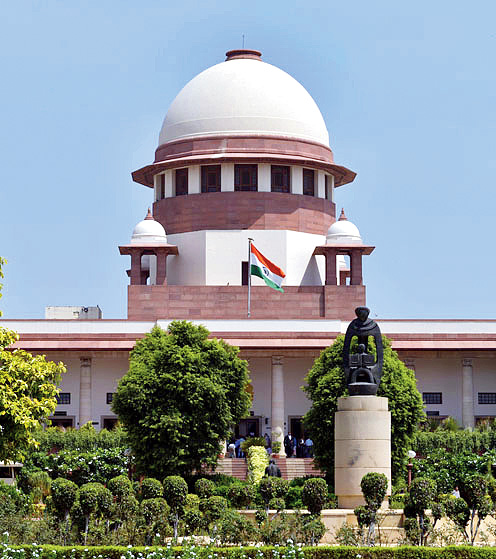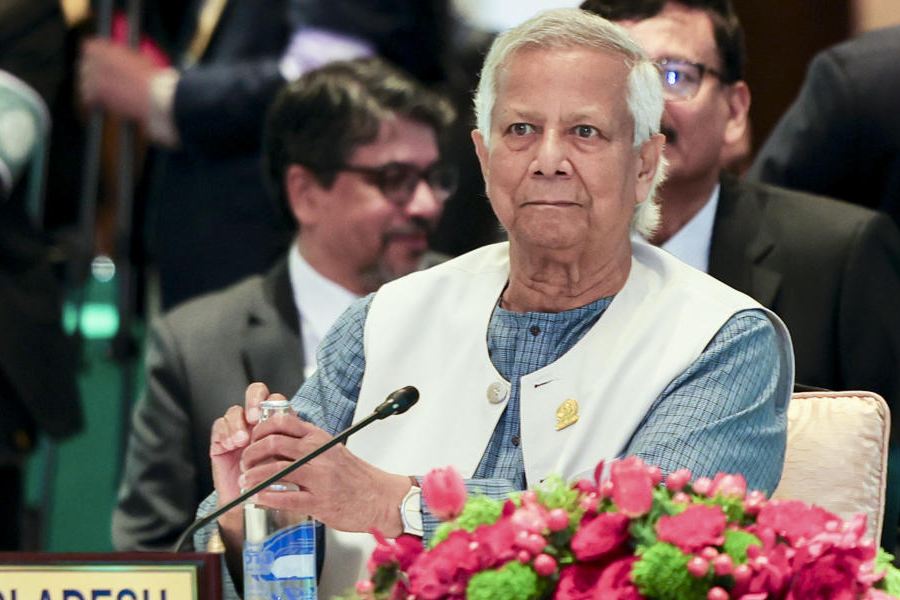The Supreme Court on Friday conducted proceedings through video-conferencing for the first time ever, having like all other courts stopped regular hearings because of the coronavirus outbreak.
Judges participated in the videoconferences from their office-cum-residences and the advocates did so from their chambers across Delhi.
Only three benches of two judges each heard the cases, against the usual sitting of 15 benches.
In all, 20 matters were heard by benches made up of Justices Arun Mishra and Deepak Gupta, Justices D.Y. Chandrachud and Surya Kant, and Justices L. Nageswara Rao and Aniruddha Bose.
Justices Rao, Kant and Bose also held a meeting, attended by senior advocate Dushyant Dave (president of the Supreme Court Bar Association) Ashok Arora (Bar Association secretary), Joseph Aristotle
S. (secretary, Supreme Court Advocates-on-Record) and solicitor-general Tushar Mehta.
The meeting discussed a plan to form two benches for hearing extremely urgent matters, which too would be conducted only through video-conferencing.
Special steps
With the apex court out of bounds for advocates, litigants and the media, Chief Justice S.A. Bobde and Justice Chandrachud — who heads the Supreme Court e-committee — have put in place various litigant-friendly steps to deal with urgent and important cases.
During the period of shutdown, an email id — mention.sc@sci.nic.in — has been made available for lawyers to email urgent matters.
According to the apex court registry, lawyers who want their cases heard urgently should initially email a one-page synopsis along with the urgency application to the address mentioned.
This can be done only by the Advocates-on Record (AOR) concerned, who are officially authorised to file petitions in the Supreme Court.
The application has to contain the details of the AOR, particularly the AOR’s email ID and mobile number.
Once the application is cleared, it will be forwarded to one of the benches constituted for urgent matters.
After the bench endorses the urgency of the matter, it will be put up in the cause list for the following day.
A list of the phone numbers of the judges has also been made available to the Bar, who can make oral mention of urgent matters every day between 10.30am and 11am.
Video link
After a matter is put up in the cause list along with the time of hearing, a link will be sent to the AOR’s email. It can be used only for the videoconference relating to that particular case at that particular time.
Based on the progress of the video-conferencing facility, bail-related matters will be considered for urgent listing, sources said.











